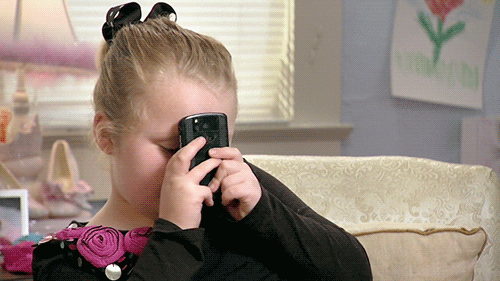So many people have memories of watching Sesame Street growing up. I, however, was not one of those kids. I am sure I watched it a little bit but it is not one of the shows that I really remember watching growing up. I knew the characters but that was likely more from people talking about Ernie and Bert, Big Bird and Cookie Monster. So when I saw Postman’s quote: “…We now know that “Sesame Street” encourages children to love school only if school is like “Sesame Street.” Which is to say, we now know that “Sesame Street” undermines what the traditional idea of schooling represents.” It got me curious as to what Sesame Street feels schooling should be like.
I noticed that Sesame Street did do some pretty good things such as talk about topics that maybe aren’t easily addressed in homes or at school. This could include conversations about race, death, HIV, obesity, breastfeeding, Autism and the mentioning of many life events such as 9/11. I do feel that it was brave and with the best intentions when Sesame Street tried to tackle some of these topics. It provides the opportunity for students to become aware of something that is happening around them when they maybe are unaware of it. It also provides an insight into an area that they may see a different side of at home. Maybe they come from a home that does not talk about death and this has provided an opportunity for a child to learn more about grief. It might also spark a conversation at the dinner table if questions are raised. It really could go either way. I feel that mentioning these topics in an appropriate unbiased way is important… but there is so much more to traditional schooling than that.
When comparing to traditional schooling of today, there is one thing that both Sesame Street and our education have in common. Early intervention. By this I mean, exposing children at a young age to learning. We have pre-school systems set up for children at the age of 3 and 4. That was who Sesame Street was trying to target. They were the only ones at that time that were providing academic content to young viewers. Television was new too so that attraction helped keep young viewers engaged. That is much the same as now days with smart phones. Two year-olds grab hold of the phone and know how to unlock them, find youtube or their favourite app and navigate it in a way that keeps them occupied. The key word being occupied.
They may get something from what they are watching but there is more to it than that. There still needs to be a dialogue with an adult to really understanding what they are watching. It rather compliments their learning instead of replacing it. Using chromebooks, youtube, projectors and other AV technologies in the classroom is a way to add to the lesson, further the learning and gain student engagement. It helps to meet different learning styles but it isn’t the only way. There needs to be more to it than simply parking in front of the TV. I see it all the time. Parents handing their child a phone to keep them quiet. There is no interaction with the child on what they are watching. It is just instant Zombie mode and relaxation for the parent. My daughter watches more TV than I would like but I try and engage in teaching when she is doing so. We talk about the feelings that characters are feeling in moments on the show, we talk about the colors other observable things that are happening and I even have started to ask comprehension pieces about it. It takes away my guilt but I also find it helps her really understand what is happening. I tell myself moderation is what is important. Just like in the classroom. We have all this access to amazing technology, why aren’t we using it to further our students learning? We can incorporate some of the basics and then enhance them with the new technology we have access to.
I struggled all week with wrapping my head around this post. Not only because I felt so unfamiliar with Sesame Street, but also because it really got me thinking about how I am interacting with my own kids and shows that are similar to Sesame Street. I still feel like I haven’t unwrapped the full implications of what Sesame Street has done for generations of young learners. Maybe that is just it, we don’t know the impact of a moment until way down the road?!



Thank you Jocelyn for sharing your thoughts. Just like you, I couldn’t really relate to Sesame Street, since I grew up in a different part of the world. I am just like you, often time feel guilty when my children watch a lot of T.V. or spend time on their devices. I agree with you regarding the importance of “moderation”. I truly believe though that AV technology holds a lot of value, as long as we use it purposefully.
LikeLiked by 1 person